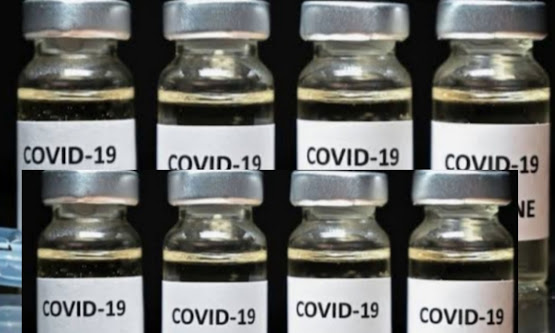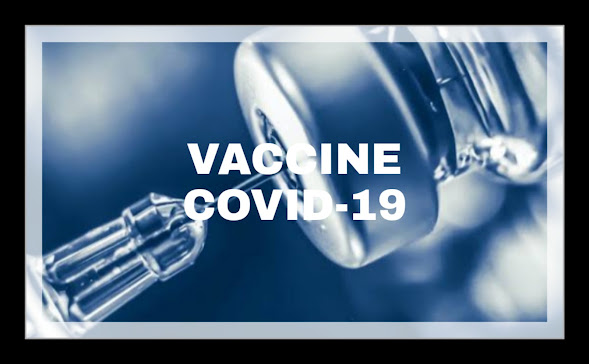Public Health England has approved another vaccine to save the lives of humans, vaccines that can be stored in the refrigerator. According to British media, the new corona vaccine Oxford AstraZeneca vaccine has been developed in Oxford, UK.
According to foreign media reports, the new vaccine will be stored in the refrigerator. The British government ordered 100 million vaccines in the first phase. British Prime Minister Boris Johnson said that the approval of Corona Vaccine AstraZeneca is great news. Will be able to get more vaccinations.
Researchers at the Oxford-AstraZeneca team earlier this month published interim results showing that their vaccine was 62 percent effective in two-dose and 90 percent of volunteers working in a small group that received half-dose followed by full dose. magnified how powerful half-dose data is. Oxford scientists say they have been studying why different species produce such different results.
At a conference conducted by the British Medicines and Healthcare product Regulatory Agency (MHRA), which approved the vaccine, independent scientists said data provided by Oxford-AstraZeneca, from clinical research in Britain, Brazil, and South Africa, showed that the vaccine "was around 70 percent effective. reduce the claim by 90 percent efficiency, concluding that the results of the dosage would not be supported at this time. They have approved a two-dose vaccine. British scientists recommend acceptance as excellent news and add that Oxford-AstraZeneca could help protect not only Britain but many countries.
The Oxford vaccine, however, requires a standard refrigerator at 2-8C and is easily transported from UK factories, which means it will not need to be stored in central hospitals and community centers, allowing immediate evacuation from GP operations and nursing homes. The program will begin on January 4 and will aim to reach millions of people at risk as soon as possible. The emergence of new viruses that cause high levels of infection has made vaccination even more urgent. Easy use of the Oxford vaccine means that pharmacists will be able to carry the vaccine to chemical stores, as they do with flu vaccines.
The Joint Vaccination Committee (JCVI) has advised that the priority should be to give as many people as possible at risk to their first dose of Oxford or Pfizer vaccines, rather than giving two doses in four weeks according to the protocol test. Everyone will still get their second dose again. this will be within the first 12 weeks of his life. The second dose completes the study and is important for long-term protection.
Two doses of the vaccine, divided into four weeks, were initially thought to provide the best protection against Covid. However, the dosing error led to the finding that when clinical trial participants were given half the dose followed by the full dose, the drug was apparently significantly higher than when participants were given two full doses, 90% efficacy in the previous case, and 62% efficacy on these results. The results were met with curiosity and caution - not least because the group gave half the total followed by the total dose was much smaller than the group given the total two doses, and did not include participants over the age of 55.
Also, while the UK government is ordering 40m doses of Pfizer / BioNTech vaccine, it is still ordering 100m doses of Oxford / AstraZeneca jab, of which 4m doses are now in the UK, and 530,000 of them are available from Monday. financial side: Oxford / AstraZeneca vaccine costs about $ 3-4 per shot, compared to $ 20 for Pfizer / BioNTech jab, the first of which was made non-profit during the epidemic.
Questions also remain about how the vaccine protects the elderly. Only 12% of study participants were over 55 years old and were later enrolled, so there was not enough time to detect that they had lower rates of disease than those who had not been vaccinated. when studies were stopped because a participant became seriously ill. AstraZeneca initially refused to provide further details, clarifying patient confidentiality. Finally, the tests resumed after administrators reviewed safety data and decided it was safe to proceed. Published results do not indicate hospitalization or serious illness for those who have received the vaccine. The results released so far are only partial because studies are ongoing. A separate study to test the AstraZeneca vaccine in the U.S. S. also continues. Britney has ordered 100 million doses of two-pill injections, enough to vaccinate 50 million people.
AstraZeneca has promised to provide hundreds of millions of doses too low- and middle-income countries, as well as to provide a nonprofit vaccine in those countries permanently. Hancock said on Wednesday that the UK had 100 million doses of the Oxford / AstraZeneca vaccine, combined with 30 million doses of the Pfizer / BioNTech vaccine, would be enough to vaccinate all UK adults.
UK Prime Minister Boris Johnson wrote on Twitter that the ratification of the policy was "really good news and a victory for British science." He also said: "We are now moving to vaccinate more people as soon as possible.
During an increase in infection rates, hospitalization, and death from Covid-19, greater clarity is urgently needed than any risks associated with extending a second-dose window to 12 weeks. the risks exceeded, following individual interviews with all women, Raine said. A breastfeeding woman can now also be given a vaccine, depending on the individual interview.
The vaccine can now be given to people who have allergies, as long as they are not allergic to any of the ingredients of the vaccine, he said.
The UN health agency does not license or regulate the vaccine itself, but usually tests vaccines once approved by a regulator such as the U.K. WHO experts would then recommend that the shorts be "pre-qualified" for purchase from sponsors of developing countries.
Many of the coronavirus drugs to be used in poor countries may have been developed for the Serum Institute of India, contracted by AstraZeneca to produce 1 billion doses. In June, the pharmaceutical company announced that the Serum Institute would produce 400 million volumes by the end of 2020 but since the beginning of December, only 50 million volumes had been produced after repeated production was suspended. In addition to the Serum Institute, AstraZeneca works with vaccine manufacturers in Brazil, South Africa, and China.




Comments
Post a Comment